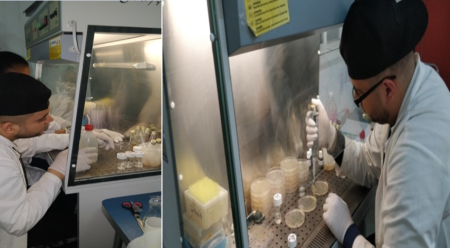
Objective:
The wide potential of resin acids as bioactive agents could be considered as very promoting products for new applications of the natural forms and their derivatives.
The objective of the present investigation was mainly focused on the assessment of the biological performance of the resin. Therefore, the evaluation of the antibacterial activity of the three Tunisian pine species Pinus pinaster, Pinus pinea, and Pinus halepensis were conducted in order to control four pathogenic bacteria species.
Context:
Resin is a natural product with multiple applications and a great demand in the chemical industry. The exploitation of the abundant pine resin in Tunisian forests could contribute to bio-economy and generate additional income for forest populations. Until now, the traditional know-how of tapping was very limited in Tunisia. Therefore, the present work was an exploratory study aiming to develop knowledge and best practices of tapping techniques. These could contribute to the promotion of the best performances of the antimicrobial activities of Pine in Tunisia which could be a great importance.
Contacts:
Hmaidi Bilel,bilelhmaidi04@gmail.com , http://www.isptabarka.agrinet.tn/
Ben Salem Emna,emnabensalemmoodle17@gmail.com ,http://www.isptabarka.agrinet.tn/
Mokhtar Baraket, moktar.baraket@gmail.com, http://www.inrgref.agrinet.tn/
Aloui Foued, foued.aloui@gmail.com ,http://www.isptabarka.agrinet.tn/
Further information:
Abi-Ayad M., Abi-Ayad FZ., Lazzouni HA., Rebiahi S.A., Ziani-Cherif C., Bessiere JM. 2011. Chemical composition and antifungal activity of Aleppo pine essential oil. Journal of Medicinal Plants Research. 5(22): 5433-5436.